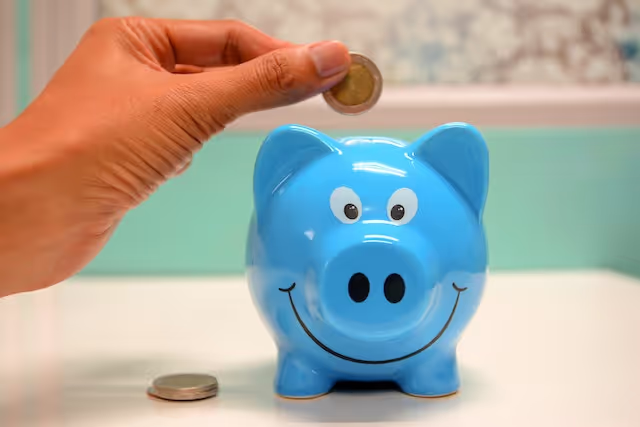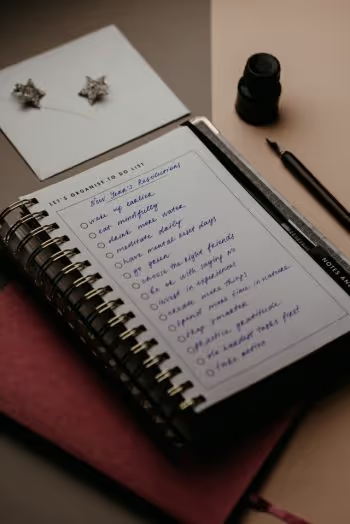
Blog
Practical Ways to Save Money Every Day
20 quick-fire ways to cut expenses
With increased pressure on the cost of living, here’s a quick-fire list of 20 ways you can save money.
1. Cancel Unused Memberships and Subscriptions
If you’re on the fence about any of your memberships and subscriptions, or find that you’re not using them very often, cancel them. Even at the best of times, a gym membership is a waste of money for most people. Remember, you can always renew the membership later if it turns out that you miss it.
2. Turn off the Lights
Keeping the lights on in your home may not be expensive on a per-watt basis, but it sure does cost money over time. To save as much as you can, turn off lights any time you leave your house – or even when you leave the room. Turning off lights when you have plenty of natural sunlight can also help keep your electric bill down over time.
If you aren’t using a light, turn it off.
3. Do a Tax Return
Saving money on taxes is still saving money! Filing a tax return is a lot easier than you might think – the IRD let you do it online – and most Kiwis have simple enough financial situations that they can do it themselves. Why bother? Because some things that you may not have considered are actually tax deductible, such as premiums for income protection insurance (provided the benefit from the insurance policy is taxable such as an indemnity policy).
Also, if you’ve donated to charity over the last financial year, from 1 April to 31 March, then you may be able to claim the tax back on that too.
Learn more: Pay less tax
4. Repair Clothing
Most basic sewing jobs can be completed by anyone. Not sure how? – watch a YouTube video or two and learn a new skill!
This might mean sewing a new button on a shirt with some closely-matched thread or patching a hole in some old pants to save them for times when you’re working around the house. If that’s not to your liking, try asking tailors in your area if they do repairs.
5. Avoid Financial Rip-Offs
Payday loans and bank fees are among the worst financial rip-offs. Avoiding these will leave more money in your own bank account.
6. Get in Touch with Creditors (Companies or People You Owe Money)
Count your liabilities, contact all your creditors and ask about ways to delay payments without incurring late fees and other charges.
Ask about lowering the interest rate, even if just for a limited period.
7. Clean Your Heat Pump Filters
As dust builds up in your heat pump filters, your heat pump will not only have to work harder, it won’t be able to remove all dust and allergens from the air. Cleaning the filters will keep it operating efficiently – which saves power – and it’ll also help you breathe cleaner air too.
Read your heat pump manual or Google your model number to see how to clean your specific filter and check how often the manufacturer suggests cleaning the filter.
8. Maintain Other Appliances Too
The same applies to other appliances: check all vents to ensure there isn’t any dust clogging them and that they’re clean. Check all the vents, especially on refrigerators and dryers.
Look behind bigger appliances and use your vacuum to gently clear away dust. The less dust you have blocking the mechanics of these devices, the more efficiently they’ll run (saving on your energy bill) and the longer they’ll last (saving on replacement costs). For example, a fridge works by running coolant through all those little pipes on the back – if they’re dusty, the coolant doesn’t cool down as well, so the fridge must work harder to compensate.
9. Check All Your Statements to Find Things to Cut
Get your detective hat on and start searching through all your credit card bills and bank statements to find any one-off or regular expenses that can be cut.
10. Remove Retailers from Email and Social
A quick way to avoid spending temptations: remove retailers and stores from your life!
Of course, you can’t completely avoid it all, but you can eliminate much of it from your email inbox and social media feed.
The first step is to unsubscribe from retail emails.
Additionally, you can unfollow any brands from social media too. You may still get targeted ads on these platforms, but the less images of things to buy in your feed the better.
11. Use Vouchers or Store Credit
Have you got unused or partially used vouchers just lying around? Perhaps you’ve got an unused in-store credit?
As grim as it sounds, if you don’t use a voucher for a business and the company that issued the voucher goes bust, your voucher is nearly certainly worthless. This means that instead of “sitting on it”, your best bet is to use what you’ve got! Also, these vouchers don’t keep up with inflation, let alone the fact that so many people simply misplace them before they get around to using them.
12. Refinance Your Mortgage
It’s worth exploring if you can refix or refinance your mortgage to a lower interest rate or restructure it to better meet your needs. On a 30-year $600,000 mortgage, lowering the interest rate by just one percent can save you more than $142,000 in interest charges over the life of the loan. Don’t believe it? Try for yourself on this mortgage repayment calculator.
13. Master the 30-Day Rule
Avoiding instant gratification or retail therapy is one of the most important rules of personal finance. Waiting 30 days to decide on a purchase is an excellent way to implement that rule.
Quite often, after a month has passed, you’ll find that the urge to buy has passed as well, and you’ll have saved yourself some money simply by waiting. If you’re on the fence about a purchase, waiting a while can give you a better perspective on whether it’s truly worth the money.
14. Remove Your Credit or Debit Cards from Your Phone and Web Browser
This is a simple behavioural trick: the more minor obstacles in the way of us spending, the less likely we are to spend.
So, go into your web browser (e.g., Google Chrome, Microsoft Edge) and find in your system settings where your credit or debit card details are saved. Delete them! The same could be said for Buy Now Pay Later, Apple Pay, anything saved in your smartphone, and any other readily saved areas. This extra step might not sound like much, but it’s an extra little nudge to help you spend more mindfully.
15. Weatherproof Your Home
Plug holes and cracks that let warm air escape in the winter, and possibly cool air escape in the summer.
You should be able to get materials and possibly advice about this from your local hardware store about inexpensively stopping unwanted heat loss. A little time spent researching this online might go a long way to save on your heating bills.
16. Use Energy Efficient Bulbs
Energy-efficient light bulbs might cost a bit more initially, but they have a much longer life than normal incandescent bulbs and use far less electricity. It might be hard to decide which type to use, but any type of efficient bulb will probably be an upgrade if you’re not using them already.
17. Downsize Your House or Move to Lower Costs
One of the biggest expenses you’ll most likely face is keeping a roof over your head. Even if you’re in a mortgage-free home, there are still plenty of housing-related costs which quickly add up with rates, insurance, and maintenance usually being the biggest.
Selling your own home to downsize, or if you’re renting, shifting to a lower-rent location won’t be immediately easy.
There might be other options too, such as getting in roommates or boarders to help split costs.
Depending on your financial situation, you may need to make some tough sacrifices for a bit to save money. But this is a great option if you feel housing is hurting your finances.
18. Minimise or Quit Your Vices, e.g., Alcohol, Smoking, Gambling
Bad habits cost!
For example, if you’re a smoker, you surely know by now that your habit is not only expensive, but potentially deadly as well. If you want to add years to your life and save money, the easiest thing to do is to stop smoking altogether.
Giving up a bad habit such as smoking can also save on other indirect costs too. For instance, if you quit smoking - you probably won’t spend so much on chewing gum, lighters, air freshener, personal insurance costs, and long-term health costs.
19. Save Money on Groceries
If you haven’t already, look into these ways you can save money at the supermarket.
20. Repair Your Shoes
Cobblers, people who repair shoes, were once a great trade. It might be experiencing a second wind, as more of us become more financially-savvy and more environmentally conscious (including being less focussed on consumer items and fast-fashion).
Repairing your shoes can save you a lot of money in the long run by extending their lifespan. For example, resoling a pair of dress shoes can cost around $50, while buying a new pair of dress shoes can cost anywhere from $150 to $350.
Like many of the other things on this list: repairing existing items is also better for the environment!
The Bottom Line: Ways to Save
Instead of cutting expenses, we usually encourage investing and growing income as the best ways to get ahead. However, times are hard for many, so it's a great time to be tough with your expenses and find ways to reduce household costs.
Keep in mind that some expenses should only be cut as an absolute last resort! Learn more: seven ways the wealthy spend their money.
You may also like:


The 10 Most Broken New Year’s Resolutions in 2026


